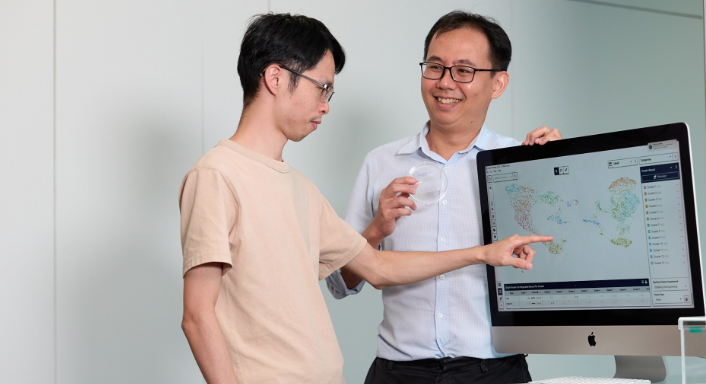
A team of researchers from the National University of Singapore (NUS) led by Assistant Professor Cheow Lih Feng from the Department of Biomedical Engineering under the NUS College of Design and Engineering, as well as the NUS Institute for Health Innovation & Technology, has invented a new technique called time-resolved assessment of single-cell protein secretion with sequencing (TRAPS-seq) to facilitate the studying of immune cell response at a single-cell level.
Cells interact with their surrounding environment by secreting proteins which act as messengers or signals for communicating with other cells. Capturing these elusive and minute secreted proteins, particularly those from our immune cells, and correlating them to the individual source cells can provide important insights into immune responses in patients with chronic diseases, such as cancer, autoimmune disorders, or infectious diseases, and accelerate the development of immunotherapies.
However, studying how unhealthy or healthy cells communicate, interact and coordinate with each other in response to stimuli or pathogens, remains a challenge for scientists.
To help fill the gap in correlating cell functions with their secreted proteins, scientists have now developed a new technique. Currently, the NUS team can profile three secreted proteins at a time, but the researchers are working towards increasing the number of secreted proteins being studied simultaneously to 10.




